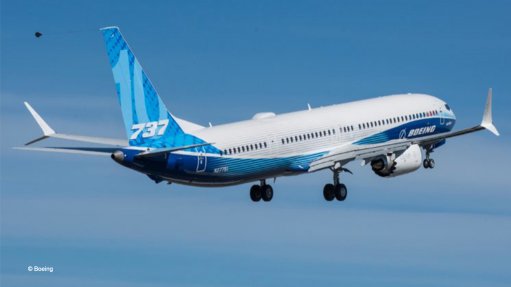
A Boeing 737 MAX 10
Photo by: Boeing
In one of the most important merger and acquisition deals in the global aerospace sector in years, US-based Boeing has announced that it is acquiring another large US group, aerostructures manufacturer Spirit AeroSystems (Spirit), in an all-share deal valued at some $4.7-billion. Including the last reported net debt of Spirit, the total value of the deal was about $8.3-billion.
The deal was complicated by the fact that Spirit had production contracts with other aerospace groups, not least Europe-based Airbus, producing major parts for the A200 and A350 families of airliners. That required Airbus to be involved in, and approve, the deal (otherwise, there would have been severe regulatory issues). These complicated negotiations have successfully born fruit, with Spirit’s facilities doing work for Airbus to be acquired by the European group. For these facilities, Airbus would pay a nominal $1 (one dollar) and actually receive a compensatory payment of $559-million from Spirit.
Spirit has been suffering from financial difficulties, losing $633-million last year, with its debt levels increasing, while the company also suffered from supply chain disruptions and rising labour costs.
Boeing’s takeover, however, was part of its strategy to restore quality control in its commercial aircraft business, afflicted by repeated quality and so safety crises centred on, but not restricted to, its 737 MAX airliner family. Spirit was a very major supplier to Boeing, being responsible, for example, for the production of 737 MAX fuselages. In fact, in what was now seen as one of the biggest blunders in US corporate, and global aerospace, industry history, Spirit was actually spun out of Boeing and set up as a separate company in 2005.
“We believe this deal is in the best interest of the flying public, our airline customers, the employees of Spirit and Boeing, our shareholders and the country more broadly,” affirmed Boeing president and CEO David Calhoun. “By reintegrating Spirit, we can fully align our commercial production systems, including our Safety and Quality Management Systems, and workforce to the same priorities, incentives and outcomes – centred on safety and quality.”
Boeing’s acquisition of Spirit would include all the latter’s defence and other (non-Airbus) commercial and aftermarket operations. “We are proud of the role Boeing plays in supporting our men and women in uniform and are committed to ensuring continuity for Spirit’s defence programmes,” said Calhoun.
Airbus would be acquiring, under a binding term sheet agreement, the Spirit facilities in Kingston in the US State of North Carolina and St Nazaire, France, which produced A350 fuselage sections, and those in Belfast, UK, and Casablanca, Morocco, which produced A220 wings and mid-fuselage sections, and that in Wichita in the US State of Kansas, which made A220 pylons. “With this agreement, Airbus aims to ensure stability of supply for its commercial aircraft programmes through a more sustainable way forward, both operationally and financially, for the various Airbus work packages that Spirit AeroSystems is responsible for today,” stated the European group.
Spirit’s facilities in Scotland in the UK and Malaysia would be put up for sale to third parties. If no such buyers emerged, it was reported that Airbus could buy them, as well.